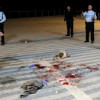OIC Summit calls for unity
The 13th Organisation of Islamic Cooperation (OIC) summit – with the theme "Unity and Solidarity for Justice and Peace" - held in Istanbul, Turkey from April 14-15, 2016, came at a time when there seems to be no apparent unity within the Muslim world. The conference, attended by more than 30 heads of states, was chaired by Turkish President Recep Tayyip Erdogan.
The OIC, set up in 1969 primarily "to support the struggle of the Palestinian people" and "to establish their sovereign state with Al-Quds Al-Sharif as its capital", is the second largest grouping of nations after the United Nations. The organisation represents 1.7 billion Muslims around the world and has 57 member states.
As is customary, the two-day conference produced three documents – the Final Communiqué, the Istanbul Declaration, and Resolution on the Cause of Palestine and Al-Quds Al-Sharif.
The 218-para communiqué is a detailed narrative, which touched upon almost all the problems facing the Muslim world. The document - which can be divided into three main sections: political, economic and counter-terrorism issues - addressed a wide range of subjects like the Palestine issue, the Syria crisis, the Arab-Israeli conflict, conflicts in Africa, counter-terrorism, poverty, unemployment, economic cooperation, etc. The 22 paragraphs of the Istanbul Declaration focused mainly on Palestine and counter-terrorism. The 35-paragraph resolution exclusively deals with protecting Al-Quds Al-Sharif and the Palestinian people from Israeli aggression.
The communiqué speaks about the centrality of the cause of Palestine and Al-Quds Al-Sharif for the Muslim Ummah. The Summit supported the Palestinian people's struggle to regain their inalienable national rights, including the right to self-determination, and an end to Israeli occupation of the Palestinian territories since 1967. It called for the establishment of an independent and sovereign Palestinian state, with Al-Quds Al Sharif as its capital, in accordance to UN resolutions.
The communiqué strongly supported the Afghan National Unity government and its efforts to fight terrorism. It welcomed the Afghan-led peace and reconciliation efforts, which will help restore peace and security in Afghanistan.
The summit also expressed hope that negotiations, which began in Geneva on April 13, 2016, would contribute to resolving the Syrian crisis as soon as possible.
The summit reaffirmed the organisation's support for the people of Jammu and Kashmir in realising their legitimate right to self-determination. The communiqué termed Jammu and Kashmir as "Indian Occupied Kashmir" (IOK) and reaffirmed that IOK is the core dispute between Pakistan and India, and its resolution is indispensible for peace and security in South Asia. The Communiqué came at a time when the situation in Kashmir was volatile due to protests and curfews and police firing that killed five civilians. In response, India took offence at this reference, lodging a protest to the OIC chair.
What was unprecedented was the condemnation of Iran in the communiqué. The summit condemned the aggression against the missions of Saudi Arabia in Tehran and Mashad in Iran, in violation of the Vienna Convention on Diplomatic Relations. It also rejected Iran's statements on the execution of Shia cleric Sheikh Al-Nimr Baqir in January 2016. It also deplored Iran's interference in the internal affairs of the states of the region, viz. Bahrain, Yemen, Syria and Somalia.
Outraged, Iranian President Hassan Rouhani, who was leading the Iranian delegation, boycotted the closing session. In a post-summit meeting with Turkish Prime Minister Ahmet Davutoglu, Rouhani complained that the OIC has not fulfilled its mission. Iranian officials denounced the communiqué as biased and contrary to the spirit of Islamic unity.
Indeed, it now seems clear that the Saudi Secretary General of OIC and the Turkish Foreign Ministry gave in to the draft communiqué prepared by the Saudi Foreign Ministry. Besides, President Erdogan, probably keen to have Saudi King Salman at the summit, played a compliant role.
The communiqué called for renewed efforts to end continued discrimination and denial of political, economic and civil rights of the Rohingya Muslim community in Myanmar. It called upon the new government of Myanmar to restore the citizenship of Rohingya Muslims, and take necessary measures to protect their basic rights. The summit supported the Secretary General's work plan and the efforts of his Special Envoy for Myanmar and continued engagement of the OIC Ministerial Contact Group on Myanmar, of which Bangladesh is a member, for resolving the problem. The communiqué also welcomed ASEAN member states' firm commitment to help resolve the issue and hoped that the new Myanmar government will improve the situation.
The summit also called upon Philippines and Thailand to protect the Muslim minority communities in those countries. References also have been made to the conflicts in Somalia, Central African Republic, Cote d'Ivoire and Guinea, Djibouti, Eretria and Gambia.
On economic issues, the communiqué welcomed the 17 Sustainable Development Goals and commended the progressive increase in intra-OIC trade. The summit also established the Islamic Organisation of Food Security (IOFS) as a new specialised institution, based in Astana, Kazakhstan.
While the summit severely condemned the violence perpetrated by Daesh (ISIS), President Erdogan announced that the OIC has accepted his proposal to create a multinational police centre based in Istanbul to battle international terrorism. The new structure, called the OIC Centre for Police Cooperation and Coordination, shall fight ISIS in Iraq, Syria and Libya, and Boko Haram and Al-Shabab in Africa, as, the conference stated, all these terror organisations oppress and harm all Muslims.
More importantly, the summit called upon member states to challenge the exacerbation of anti-Muslim sentiments, which intensified stereotypical generalisations against Muslims, as well as collective punishment on all Muslims, by issuing clear statements that the Muslim world does not condone violent acts of marginal, misguided individuals claiming to speak or act in the name of Islam.
During the closing session, President Erdogan said, "As Muslims, we cannot overcome our difficulties without achieving unity in spite of our differences". How very true. The Muslim world needs to develop a common denominator of issues over which no Muslim country will differ. Had the Muslim nations been united, the Palestinian issue would have been resolved long ago.
Let us hope that the summit's call for unity will be achieved, despite difference of opinions amongst the Muslim nations.
The writer is former ambassador and secretary.

 For all latest news, follow The Daily Star's Google News channel.
For all latest news, follow The Daily Star's Google News channel. 








Comments